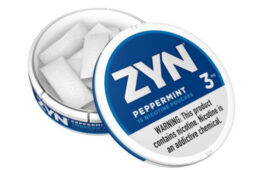Regulatory costs have always been part of the price of doing business in the Empire State, but increasingly New York C-Stores must navigate increases in the legal age to purchase tobacco products, not to mention minimum price mandates, which took effect June 1.
By Jim Calvin
Misguided local restrictions on tobacco retailing continue to proliferate across the state of New York in spite of the best efforts of the convenience store industry to halt their advance.
The Empire State has become a bubbling cauldron of agenda-driven attempts to impose higher purchase ages, price floors, store count caps and other encumbrances that are meant to cut tobacco use but end up exacerbating the ever-expanding illegal trade epidemic.
TOBACCO 21
Funded by taxpayer dollars, defiant of the U.S. Food and Drug Administration (FDA)’s standing as omnipotent regulator of tobacco, and enabled by politicians afraid to ask tough questions, the anti-smoking zealots have made headway on Tobacco 21 this year, capturing Rockland and Onondaga counties and getting bills introduced in at least 10 other New York State jurisdictions. Most are still pending; several have voted it down.
The proponents have tried to create an illusion of “momentum” to convince state legislators into passing Tobacco 21 statewide this session. Never mind that for every county that has adopted it, three have not.
At the local level, haloed public health advocates cram local public hearings, professing, “If this saves even one life, it will be worth it.” Worth what? Do they mean the legitimate category sales destined to be lost by law-abiding neighborhood retailers for a policy that won’t work? If saving one life were the standard for new laws, we wouldn’t let anybody drive a car, jump out of an airplane, cut down trees or ski down a hill.
Their reasoning goes that if you make it illegal for 18, 19 and 20-year-old smokers to buy cigarettes, they’ll all quit smoking, cutting off supply to younger teens. But wouldn’t a 19-year-old be just as resourceful as a 15-year-old in circumventing the purchase age? Don’t they have any older friends or relatives who smoke?
Couldn’t they drive to adjacent counties or states where the legal purchase age remains 18, or tax-free Native American enterprises where there’s no health department monitoring of age verification? The much-heralded barrier is made of Swiss cheese. Sadly, the chain of supply would remain intact. A higher purchase age, regrettably, won’t work.
Meanwhile, in New York City, the you-know-what is about to hit the fan, thanks to a mayor and city council who constantly try to one-up each other on bashing tobacco retailers.
PRICE MANDATES
On June 1, breathtaking new minimum price mandates took effect. The floor for a pack of cigarettes rises to $13, including all taxes. For the first time, there will be minimum prices on other tobacco products (OTP)—$10.95 a pack for little cigars, $8 per stick for individual large cigars and $8 per 1.2-ounce package of smokeless tobacco—but those price floors exclude state and city taxes.
And, New York City is levying a local excise tax on OTP for the first time: 10% of the price floor, tacked onto the minimum price.
You know who doesn’t have a price floor? Street dealers who already control 60% or more of the Big Apple’s cigarette market and couldn’t care less about the legal purchase age, and online vendors who sell the same cigars we do, but without any state or city taxes or age verification whatsoever. These new price floors will succeed only in chasing more tobacco customers away from licensed, tax-collecting stores into the arms of unlicensed, unregulated and untaxed purveyors.
But there’s more. From now on, New York City is going to severely curtail the issuance of new retail tobacco and e-cigarette licenses, aiming to gradually lower the number of outlets by attrition.
As long as elected officials care more about appeasing public health advocates than understanding the true impacts of their agenda on law-abiding retailers and consumer behavior, New York convenience stores will continue to face regulatory threats to the tobacco category.
Jim Calvin is the president of the New York Association of Convenience Stores (NYACS), a private, not-for-profit trade association, dedicated to unifying, serving and representing New York State’s convenience store industry.




